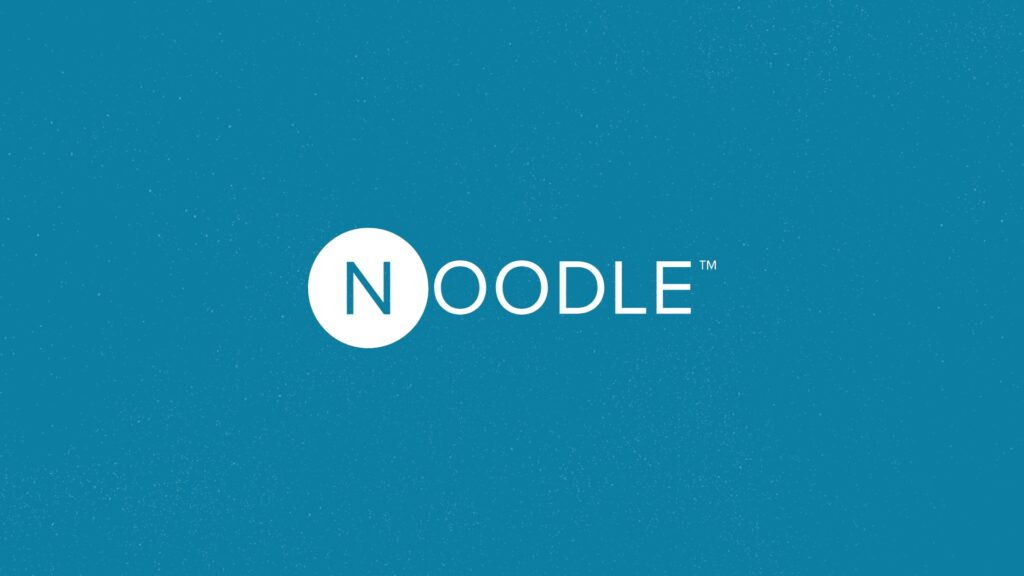Christopher Washington, a Managing Director, Academics on our Learning team, caught the education bug early in his academic career. He spent the last decade before joining Noodle working in higher education. He is the first to say that his own academic path was initially bumpy. Like many 18 year olds, Chris was not completely ready to take on the college world- a task that was made much more complicated by the fact that he was a first generation college student, without parents who had already explored that world and could help him navigate it. After a year of commuting from his home in Oakland, CA to San Francisco State University, and feeling unsupported and unheard, Chris took a break, later returning to City College of San Francisco for his AA, then UC Santa Barbara for his BA, and ultimately giving SFSU one more chance, earning his MA there. It was during his time at City College, working as a tutor and TA, that he was inspired to become an educator, and to share his lessons learned with future generations of students.
Get to Know Managing Director, Academics Christopher Washington
“Great leaders know that there is always room to fight for what they believe in, and they keep pushing to make people’s lives better even in the face of seemingly insurmountable odds.”
What elements or traits does a great leader exhibit?
Empathy. It’s something that is easy to forget in the workplace because we are all trying to do great work and achieve results. But no matter how busy a leader is, it is important to use a team-centered approach. A leader needs to find empathy and ask: what is the experience that my teammate or my colleague or my client is having? Doing this helps make sure that we are framing our leadership in ways that feel authentic and caring.
When you think of great leadership, who comes to mind? Why?
There are a whole host of names that come to mind, but some of the first are Shirley Chisholm, Nelson Mandela, James Baldwin, Jackie Robinson, Serena Williams. All of the people on that list have or had a clear sense of purpose, and a history of continuing against odds that seemed unbeatable at the time. For trailblazers like Shirley Chisholm and Nelson Mandela, there was no model or representation before them to indicate they would be successful, but they persevered. They kept going even when many people around them were telling them they were wasting their time. Great leaders like these know there is always room to fight for what they believe in, and they keep pushing to make people’s lives better even in the face of seemingly insurmountable odds.
How has your personal leadership style evolved over time?
I love that question, because my style has evolved quite a bit as I have gotten older. When I first got into the professional world I thought I had to be perfect- I believed the old saying that as a man of color, I had to be twice as good to get half as far. Having that in the back of my mind made me more cautious about making decisions and less confident about trying things that required me to take a chance. What I’ve learned with time and maturity is that successful leaders are able to give themselves some grace and learn from failure. In my experience that isn’t as easy for BIPOC folks – we aren’t always given the grace to make mistakes that our white colleagues are. I am now much more confident analyzing the data in a situation, and making the best leadership decision possible in that moment. No matter the result, I learn from the experience. I’ve had wonderful mentors who have modeled this kind of collective learning – from success as well as failure.
What is it about your background or career experiences that successfully positioned you for your role at Noodle?
I am a Managing Director, Academics leading a group of Academic Directors and their learning design teams. We work with SME faculty at our university partners, and help them to take their vision of their on-the-ground courses and turn them into amazing and unique online courses. A lot of my past experiences prepared me for this role, so I was very excited about this job opportunity. I was a first generation college student, and my first attempt was challenging. I don’t think that going to college at 18 makes sense for everyone, and it definitely did not for me. When I was a little older and more ready, I went back to community college, and I fell in love with education. I had a brilliant English professor who encouraged me to be a peer tutor, and I knew that I had found my path in teaching and the education world.
My goal in the world of education has always been to demystify the academy. There were actually many resources to support me when I started college, but I didn’t know about them the way people whose parents went to college did. My approach is always student centered; I don’t take for granted that all students understand the educational systems in which they are expected to succeed. At Noodle, I know that a large percentage of our students may be first generation Masters students, so I work to be very clear and deliberate about how we present them with information, assignments, etc. I am always thinking about how students encountering these materials for the first time would receive them.
My time as an assistant dean at a business school was also great preparation for this role. Like many of our programs at Noodle, our programs in the business school I worked for leveraged the cohort model to support our students. We don’t tell our students to just “figure it out” or “sink or swim” — we curate experiences and work to make education user-friendly and community focused.
How do you support the success of your team?
I strongly believe in mentorship. And I know that the mentorship doesn’t always have to come from me. I want to know what my team members are passionate about, and to help find someone somewhere to whom they can go to learn. I also try to make sure that folks are feeling supported. I offer options for solutions; I don’t mandate my suggested solution, but try to be a partner in resolving problems. I also work to model that so that my team members will be solutions oriented as well.
When it comes to work, I always try to give credit where it is due; I know that if they look good, I look good. My general management style is to try to make the teams’ lives easier and their quality of life better. It is important to make people feel cared for. This mindset has also helped me with our university partners. I understand that they are in a scary position, investing a lot of money with a fairly new company and fairly new ways of delivering education. Universities tend to be risk averse, and even though I know that they will be happy with our collaboration, I also know that they are pushing their comfort zones. Remembering that, and the need to make sure that our partners feel informed and secure is very grounding.
Describe how your career has been enhanced by exposure to diverse people, places or experiences.
My educational training is in pedagogy and applied linguistics. I was also trained in Teaching English to Speakers of Other Languages, and I have spent a long time working with international students. When I first caught the teaching bug, it was at City College, tutoring international students. I remember one formative experience very clearly. I was tutoring a student from China who had to write an essay about sweatshops. The professor was pretty new and the material given was, understandably, very anti-sweatshop. The student’s essay acknowledged those conditions, but also had a perspective that they were unsure was welcome in the classroom. The student had friends and family that could not survive without such jobs; for them, based on their life experience, sweatshops could not be condemned as being purely bad.
Hearing that new perspective, and having empathy for it, was so important for me. It helped me to understand that the world is not so clear cut as to what is good/bad and right/wrong for each person at a given point in their lives. My international students also help me to remember, especially in education, not to take a purely Western approach to everything. Not all examples and case studies need to be from the US and the UK; those perspectives do not represent all students and can alienate students from other parts of the world by suggesting their experiences are less valuable.
What are some of the most effective tools in your leadership arsenal?
I always come back to empathy. And I take an educational approach to leadership. Modeling behavior, clear expectations, feedback loops and all the things one would do in a good class are the same things that should be done by an effective leader. If one is leading as an educator first instead of as a “boss”, people can trust that they don’t always have to figure everything out for themselves.
Tell us something about yourself that people would be surprised to learn.
I sang acapella in high school and still really enjoy karaoke; that love of performing may surprise the people who know that I’m a pretty introverted person in general. Also, I had a varsity letter for bowling in high school; I was the captain of the team.



